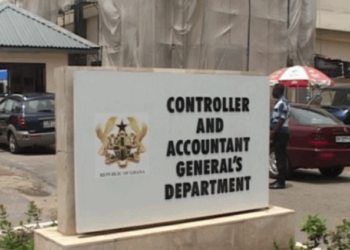The government has established an Electronic Transaction Levy as part of its efforts to broaden the country’s revenue base.
All electronic transactions will be subject to a 1.75 percent fee.
According to Finance Minister Ken Ofori-Atta, the purpose of this tax is to increase financial inclusion and safeguard the vulnerable.
The fee will be placed on mobile money payments, bank transfers, merchant payments, and inbound remittances and will be paid by the sender.
“After considerable deliberations, the government has decided to place a levy on all electronic transactions to widen the tax net and rope in the informal sector. This shall be known as the “Electronic Transaction Levy or E-Levy”, Ken Ofori-Atta said on Wednesday, during the presentation of the 2020 Budget in parliament.
The fee, however, will be eliminated for transactions totaling GHS 100 or less in a single day, or around GHS 3,000 per month.
According to the government, a part of the tax proceeds would be utilized to assist entrepreneurship, youth employment, cybersecurity, digital, and road infrastructure, among other things.
If the appropriation is authorized, the government anticipates that the new policy will go into effect on January 1, 2022.
“Government will work with all industry partners to ensure that their systems and payment platforms are configured to implement the policy”, the Finance Minister added.
He said that the total amount of transactions for 2020 was anticipated to be more than GHS 500 billion, up from GH78 billion in 2016, and that total mobile money subscribers and active mobile money users grew at an average rate of 18 percent and 16 percent, respectively, between 2016 and 2019.
As a result of this, the government feels there is a “enormous potential to increase tax revenues by bringing into the tax bracket transactions that could best be defined as being undertaken in the “informal economy.”
Read Also: #GhBudget: No tolls on public highways — Finance Minister
























